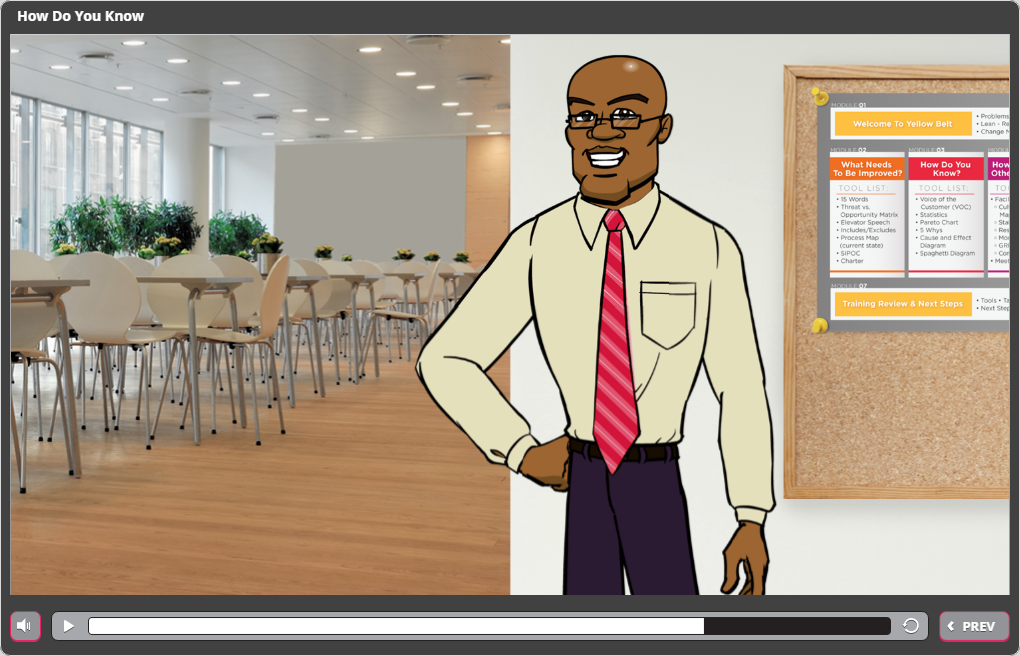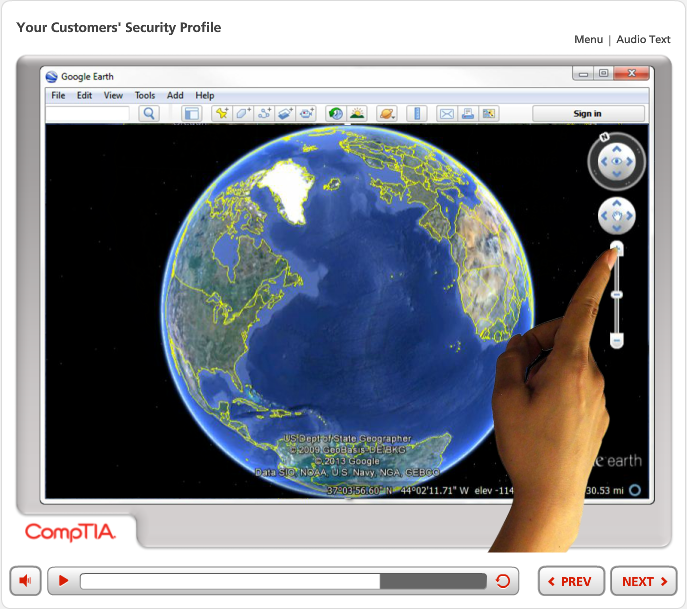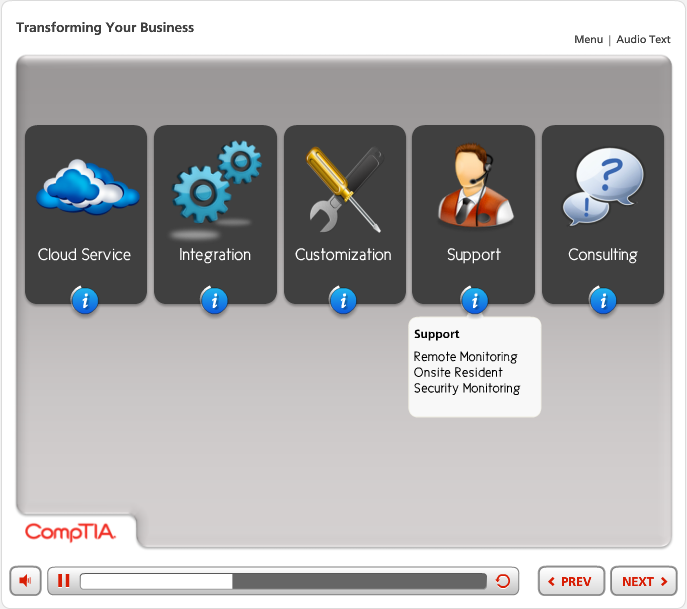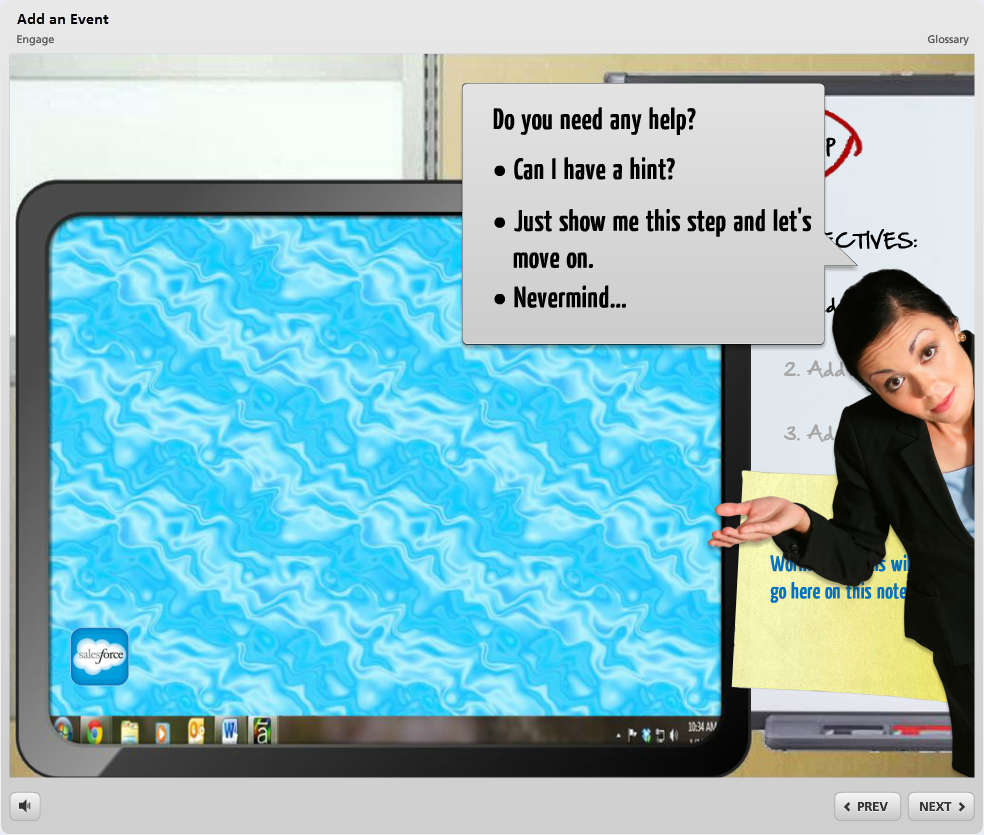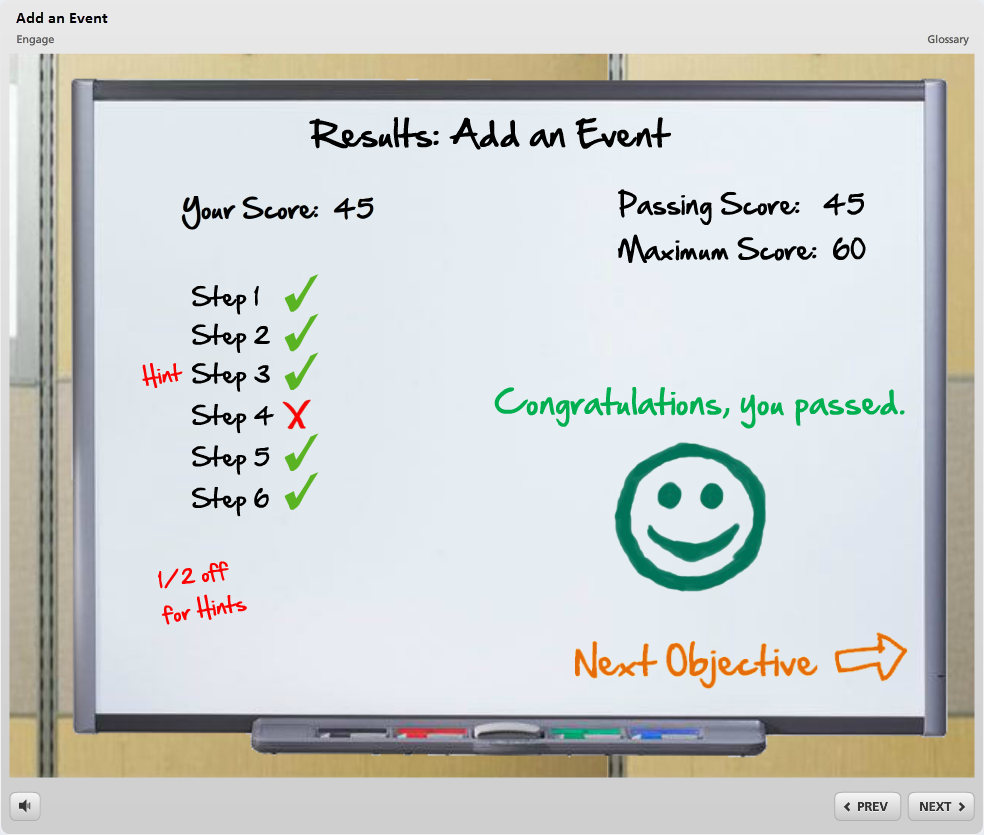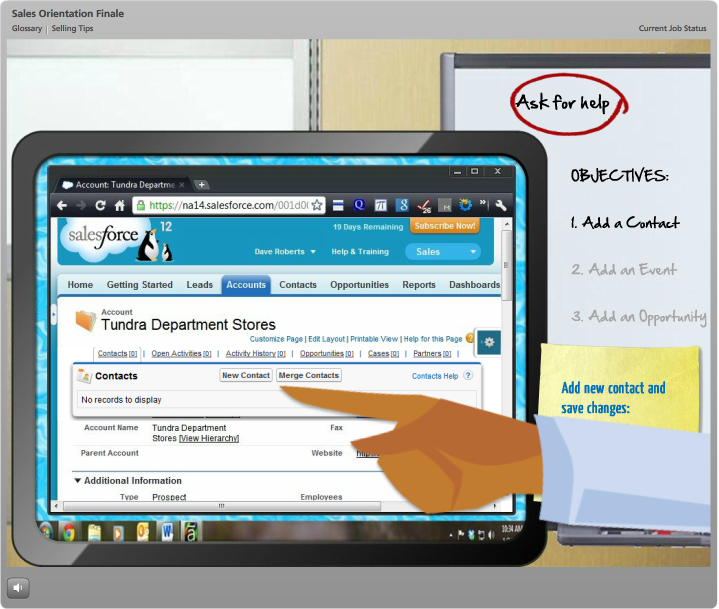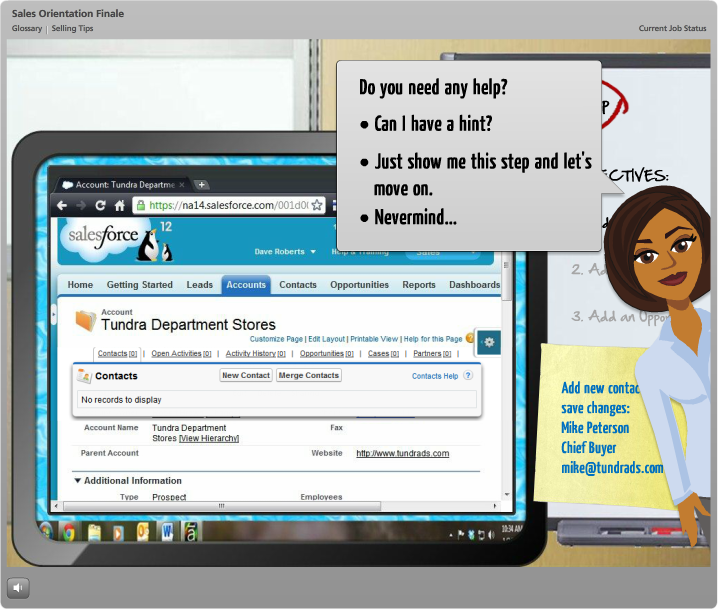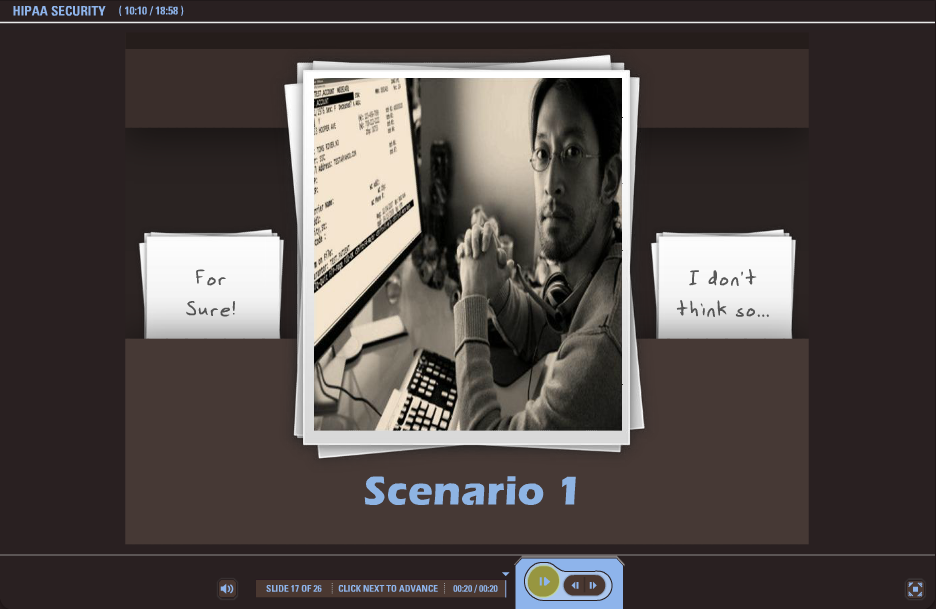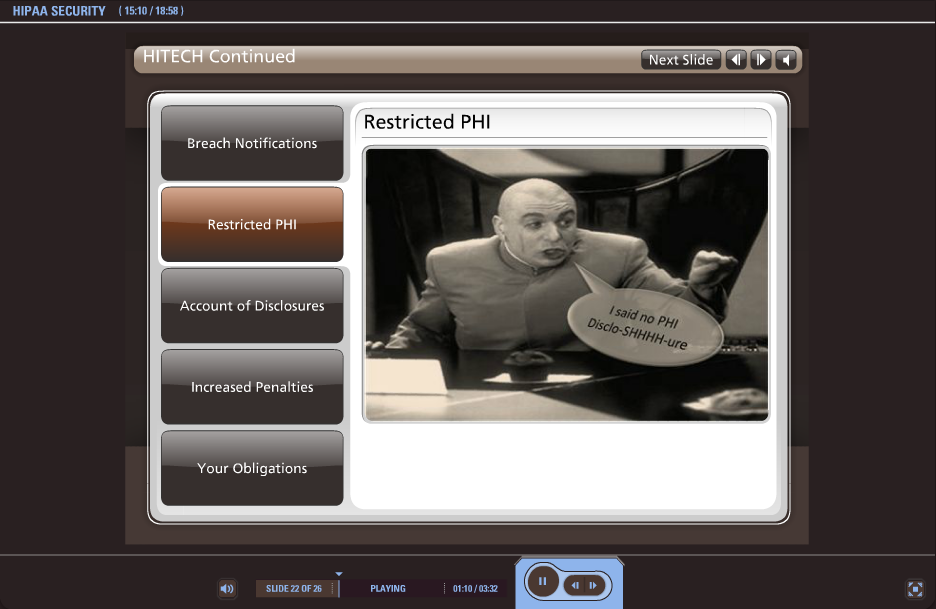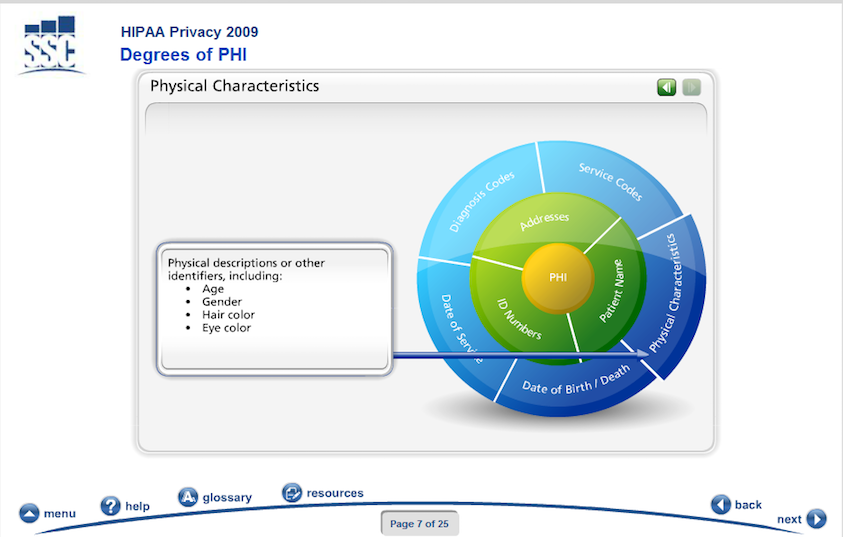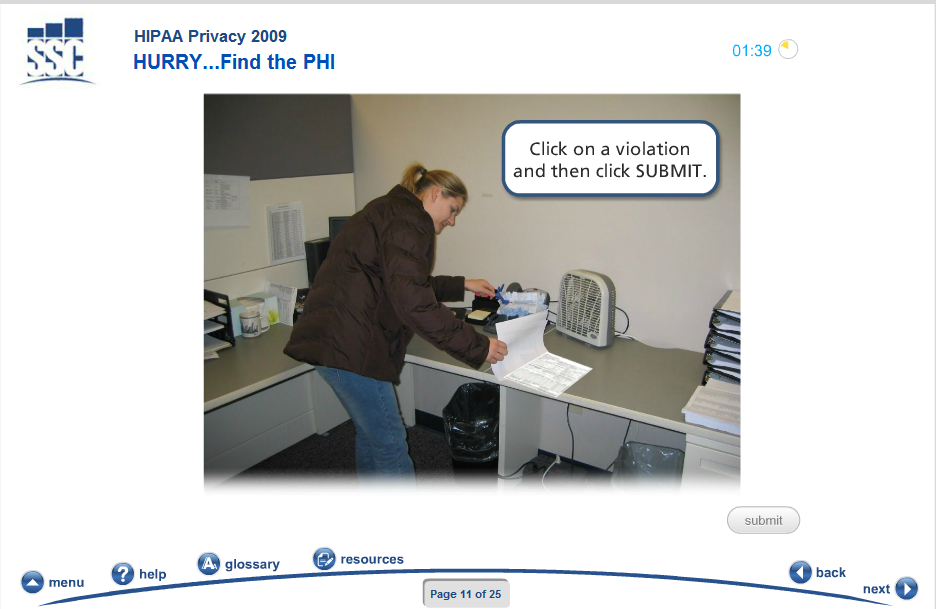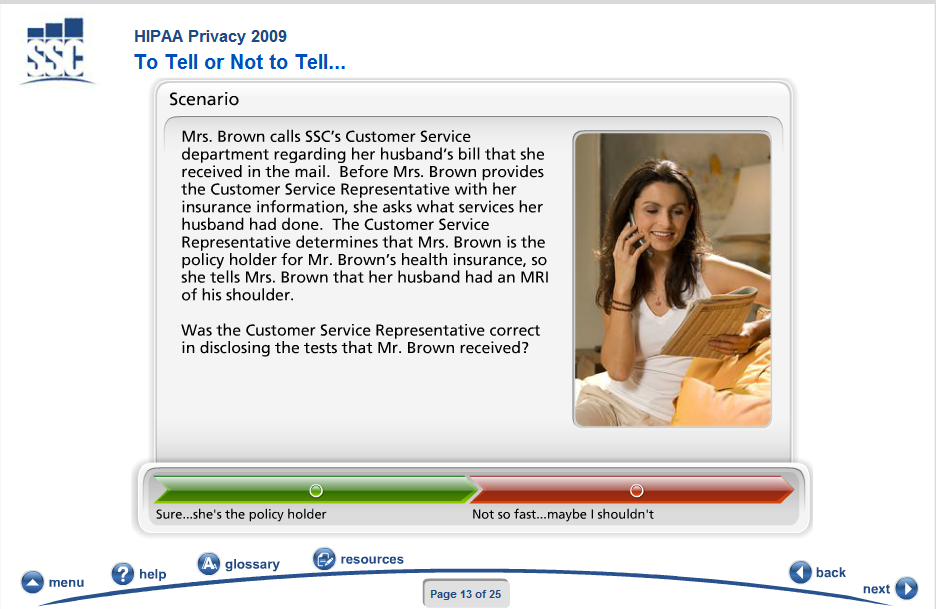Portfolio
Work samples from past projects.
-
Communicating Effectively
Implementing this eLearning course was a great benefit for our representatives. It provided them with a solid foundation in professional communication skills, resulting in higher engagement, better retention, and improved customer interactions. Highly recommend for both new hires and existing employees!
Empower your team with essential communication skills. This eLearning course equips representatives to excel in customer interactions, from scheduling and confirmations to handling challenging conversations.
-
Inclusive Recruiting and Hiring
The interactive design and engaging content not only educate staff on biases but also empowers them to make better hiring decisions. We’re thrilled with the impact this training has on the recruitment processes of hiring managers.
Build a diverse and inclusive workforce with this interactive eLearning course. It equips hiring managers to implement bias-aware best practices for recruiting, interviewing, and selecting top talent, ultimately creating more dynamic and robust teams.
-
Inclusive Virtual Teams
The eLearning course ThinkingKap developed not only addressed our trust-building challenge in a virtual world, but also provided practical strategies for our teams to implement. The impact on remote team dynamics and productivity has been great!
Foster trust and collaboration in your virtual teams. This interactive eLearning course provides practical strategies for building high-performing, inclusive teams across cultures and distances.
-
Financial Services Training
These modules transformed our existing materials into a streamlined and effective eLearning solution. We now have a standardized program that not only saves time and costs but also enhances the competency of our new hires.
Strengthen your sales team’s financial acumen. This revamped online training program equips new sales executives with the essential tools to effectively evaluate customer financial situations, leading to a more efficient onboarding process and improved performance.
-
Six Sigma Yellow Belt certification for healthcare organization
Just wanted to let you know that we LOVED LOVED LOVED what we saw in the course! We really liked the look-and-feel, the graphics, and the light hearted tone of the video to name a few. While the tone was light, the message was clear and concise and the user interaction was thought provoking and even a little difficult! Wonderful job! You hit it out of the park!!
Streamline your Six Sigma Yellow Belt certification with this engaging, self-paced program. This eLearning course cut training time from 20 hours to just 5, focusing on practical application and real-world problem-solving within a healthcare setting.
-
RW-3: Culture Game
The process of working with ThinkingKap was extremely collaborative, flexible, and they truly understood our needs. They are great project managers and are truly professionals who produce an outstanding product.
– Josh Sturtevant, RW-3Bridge cultural gaps with this immersive scenario-based game. Learners experience the nuances of cross-cultural decision-making, gaining deeper understanding and improving global interactions.
-
Channel Partner Certification
ThinkingKap Learning created this solution for us from scratch—and took the time to make sure everything from the design to the material presentation were exactly what we needed and wanted. This translation into eLearning was not only effective, but helped our trainees start communicating and interacting with the material. ThinkingKap is the rare partner that truly tries to hear what their clients want, then does not quit until their client is satisfied.
– Teresa Sears, CompTIAExpand your reach with this blended Channel Partner Certification program. Combining interactive eLearning modules, workbooks, and live webinars, it provides a scalable and engaging learning experience accessible to a wider audience.
-
Salesforce eLearning Training Courses
ThinkingKap helped us evaluate our current strategy from top to bottom, and then designed a new training plan around our specific needs. The training courses developed for us were probably the best and most professional material we’ve ever had produced for our company.
Master Salesforce with this practical, hands-on eLearning experience. Simulating real-world tasks and scenarios, it allows learners to apply their knowledge, promoting engagement and boosting on-the-job performance.
-
Articulate GURU Winner Simulated Sales Call
While the software simulation tipped the scales in favor of this course, we also loved that Tim and his team showcased so many of Storyline’s other key features… They powered nuanced scoring and realistic course branching with variables. And they tapped Storyline’s characters to connect learners with the material.
– Articulate Judges, ArticulateSharpen your sales skills with this interactive simulation. Experience realistic sales calls, navigate diverse scenarios, and receive feedback to optimize your performance and achieve better outcomes.
Check out what the Articulate judges had to say about the course.
-
HIPAA HITECH eLearning
While creating this course, there were many variables that had to be considered—but we found a way to build an interactive course that got excellent feedback from both the company and users. Anytime we can help organizations improve their operations through eLearning, we’ll take on any challenge to make it happen.
– Tim Buteyn, ThinkingKap LearningAchieve HIPAA compliance with this engaging and effective eLearning course. A lighthearted approach and unique quizzing strategy ensure knowledge retention and identify potential weaknesses.
-
Articulate GURU Winner HIPAA Privacy Compliance
Just wanted to tell you that I thought it was great. It was interesting and the personalization to SSC was phenomenal.
Boost HIPAA privacy compliance with this engaging and humorous interactive course. Real-life scenarios and fun quizzing elements make learning enjoyable while improving knowledge retention and job performance.
Check out the full write-up on the course.
Talk to an eLearning expert
Empower employees with effective training
Are you ready to elevate your organization with comprehensive training solutions?
Contact our team today to get started. We’ll walk you through our services to find the exact training solution you need for your company.
Or, call: 1 (800) 38-THINK
















